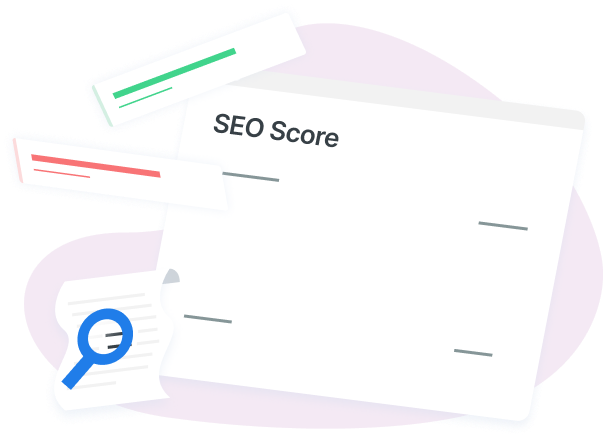What to Look for in a Good SEO Report
- Your employees are putting the reports together, but they lack the necessary training to understand what’s essential. Instead, they go for the default reporting options and look at metrics like traffic and audience.
- Your marketing provider is giving you reports, but you’ve never discussed the information you want so they simply send you the same data they provide to all of their clients. You assume that they know what they’re doing, and don’t think to ask for additional reports.
- Your marketing provider or employee is simply copying tables and stats from Google Analytics. In other words, you could get the same data from logging into the platform yourself. There is no “report”—it’s merely a synopsis.
None of these situations are uncommon, and neither are ultimately valuable to any business that wants to be successful with SEO practices. What is needed is not a subpar retelling of facts and figures, but a thoughtful interpretation.
It’s kind of analogous to all those English papers you had to write in high school and college. When a teacher told you to write a thesis on the role of love and hate in Shakespeare’s Othello, she didn’t want you to just retell the bard’s play. She expected you to take the information and carefully weave it into your own explanation of the topic.
The same holds true of a good SEO report. That’s why you have to, like the English teacher in our fictional example, be on the lookout for strong signs of excellence.
You don’t have to do it alone, though! WebFX is here to help. Contact us online or call 888-601-5359 today to speak with one of our experts directly!
What to look for in a good SEO report
If you’ve never seen a quality SEO report, it can be difficult to know what to expect. And unless you have specific criteria, it’s tough to explain to your provider what you want from them.
Here are a few elements that should be in every SEO report:
Conversion data
Conversion refers to any action a site visitor takes that moves them along in the process of becoming a customer. The exact action will depend on the nature of your site. For example, a conversion on an ecommerce site would be making a purchase, while a conversion on a B2B contracting company would be filling out a contact form. In some cases, conversion might be as simple as signing up for an email newsletter.
Unlike traffic, which simply refers to the amount of people who land on your site, conversion is important because it shows how many of them take steps towards becoming customers. For example, let’s say one of your pages gets 100 visitors per month, and 20 converts in some way. Another of your pages gets 1,000 visitors per month, and 10 of them convert in some way.
A good SEO report would not only convey these stats, but would also note that the first page has a 20% conversion rate. If the second page were optimized for conversions, a 20% conversion rate with 1,000 visitors would mean 200 conversions per month. This is the kind of actionable data you should expect from an SEO report.
Lead attribution
Where are your leads coming from? It’s common for SEO reports to only consider the last touchpoint when discussing lead attribution, but the truth is that many visitors don’t convert until after several online interactions with your company.
For instance, let’s say a lead first hears about your company through a Facebook ad. He clicks the ad and arrives at the designated landing page, reads it, then leaves your site. A few days later, he sees one of your retargeting ads on a blog he regularly reads, but doesn’t click on it. Later that day, he remembers that he meant to come back to your site, and returns by typing your brand into Google and clicking your homepage URL. He then selects the products wants to buy and makes a purchase.
Too often, SEO reports focus only on the last touchpoint. In the case of the example we just discussed, all the credit for the purchase would go to organic search. But that leaves out the entire sales funnel! SEO reports should ideally contain all the touchpoints, and should be explained, so the reader understands how leads are coming to his or her website.
If all of your leads followed the same path as the one described above (which is unlikely, but stick with us here), and you thought that organic search was your site’s only source of leads, you may decide to eliminate your Facebook ads and retargeting campaigns. That would clearly be a huge mistake—but without the right reporting, you’d never know.
Custom reporting
Finally, you should discuss custom reporting with your SEO provider. The reports that are valuable to you vary depending on your industry, as well as the channels you use to acquire leads. In fact, custom SEO reports can even include offline lead generation methods, such as billboards, radio ads, and print materials.
Unless you discuss your reporting needs with your SEO provider, chances are slim that they’ll intuitively provide everything you want. And considering that your site is probably just as unique as your business, it’s a conversation worth having.
Want better SEO reports?
Never settle for an SEO report that doesn’t give you the information you need. If your SEO reports don’t include conversion data and lead attribution—at the very least—it’s time to give your agency a call about their marketing agency reports. One of the biggest advantages of Internet marketing is the vast amount of data available to you—but only if you know how to understand it.
If you’re unhappy with the reports you’re currently receiving, or if you’re still in the process of choosing an SEO agency, don’t hesitate to contact us! We understand the value of good SEO reporting, and we can deliver the information you need to further your company’s goals—no matter what those goals may be.
Related Resources
- What is ChatGPT for SEO and How Will It Improve My SEO Efforts?
- What is Mobile-First Indexing? Learn How to Optimize for Google Mobile-First Indexing
- What is My SEO Ranking: Analyze Your SEO [Free Checker]
- What is SEO in Digital Marketing & How Does It Work? the SEO Quick Beginner’s Guide
- What’s a Good Core Web Vitals Score?
- Where’s Your Website-O?
- Why Are Backlinks Important for SEO and How Can You Earn Them?
- Why Search Intent Matters for SEO
- Why SEO is About Visibility Instead of Ranking
Marketing Tips for Niche Industries
- Top-of-the-Line SEO Services for Health Insurance Companies
- Tourism SEO: 3 Tips for Getting Started
- Unlocking Success: Long Tail Keywords for Dentists
- Urgent Care SEO & SEO Services
- Why Long-Tail Keywords Are Important for Electricians
- Why SEO for Museums Matters
- Why SEO is Important for Medical Equipment Companies
- Why Your Grocery Store Needs SEO
- 10 Easy Ways to Boost SEO for Yoga Studios
- 10 Ways Retailers Can Build Links for Their Websites


How Is Your Website's SEO?
Use our free tool to get your score calculated in under 60 seconds.









